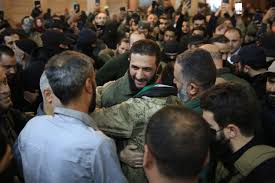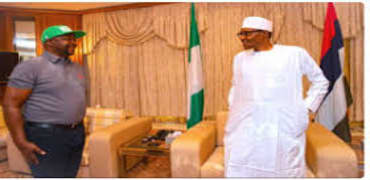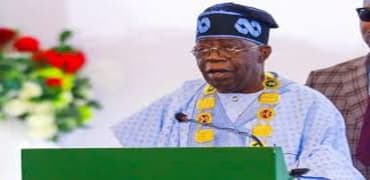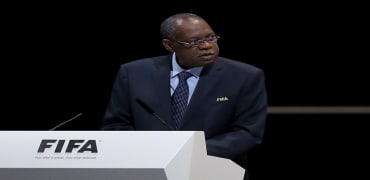From Terrorist to Rebel Leader: Jolani’s Victory Speech Sends Waves to Iran, Trump, and Israel
From Terrorist to Rebel Leader: Jolani’s Victory Speech Sends Waves to Iran, Trump, and Israel
By Achimi Muktar
Standing within the historic walls of the 1,300-year-old Umayyad Mosque in Damascus, Abu Mohammad al-Jolani declared what he called a "new chapter" for Syria. The leader of Hayat Tahrir al-Sham (HTS), once a young al-Qaeda fighter, has traveled a long road to power. His message in this moment wasn’t just for Syrians — it reverberated across Tehran, Tel Aviv, and Washington.
“This victory, my brothers, is a victory for the entire Islamic nation,” Jolani announced to his entourage, framing his ascent as a triumph born of sacrifices made by martyrs and the suffering of widows and orphans.
The choice of venue was strategic. The Umayyad Mosque is not just a religious landmark; it’s a symbol of historical and spiritual authority. By speaking here, Jolani cemented his claim not just as a military leader but as a figure of moral and national significance.
A MESSAGE TO IRAN: THE END OF INFLUENCE
Jolani’s speech took a pointed aim at Iran, signaling that its influence in Syria had reached its limit. “This victory marks a new chapter in the history of the region,” he declared, accusing Iran of using Syria to spread sectarianism and corruption.
For Tehran, the message was clear: its strategic land corridor to Hezbollah in Lebanon and its military foothold in Syria are no longer guaranteed under Jolani’s rule. This shift challenges years of Iranian investment in propping up the Assad regime, both financially and militarily.
ECHOES IN TEL AVIV AND WASHINGTON
The speech wasn’t just aimed at regional players. Jolani knows his words carry weight in Tel Aviv and Washington. Both view him as a terrorist with a $10 million bounty on his head. Yet, his rhetoric suggested an understanding of their interests.
By granting a pre-victory interview to CNN, Jolani sought to soften his image, claiming to have distanced himself from other jihadist factions due to their brutality. President Joe Biden acknowledged his remarks, noting, “He’s saying the right things,” but stressed that Jolani’s actions would be the ultimate test.
Jolani’s message to the U.S. and Israel was calculated: he understands their concerns and is positioning himself as a potential stabilizer in a fractured Syria.
A NARCO-STATE NO MORE
Jolani also pledged to dismantle Syria’s reputation as a regional narco-state, blaming Assad’s regime for turning the country into the world’s leading producer of Captagon, a potent amphetamine. His promise to “purify Syria” appealed to regional powers wary of the drug trade’s destabilizing effects.
FROM ARRIVAL TO SURVIVAL
Jolani’s journey from al-Qaeda fighter to rebel leader espousing tolerance is a remarkable evolution, but skepticism remains high. His speech at the Umayyad Mosque was a declaration of arrival, but his survival will depend on his ability to navigate the volatile web of international interests and local expectations.
For now, Jolani has positioned himself as a key player in the post-Assad era, but the world is watching to see if his actions match his rhetoric.


















